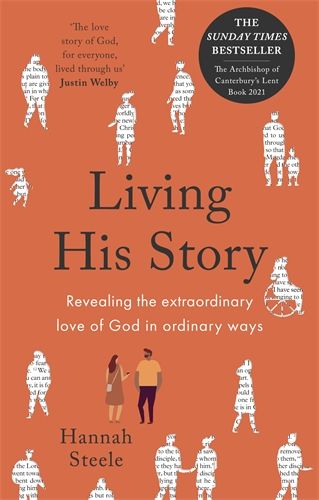Tonight we are discussing Chapter 6 “Finding the Echoes of the Story of Jesus in Our World Today” of Dr. Hanna Steele’s book Living His Story. In this chapter, Dr. Steele writes about how we can use popular culture to speak about the good news of Jesus Christ. She bases her discussion on Paul’s visit to Athens as recorded in Acts 17:16-34. Please read about Paul’s visit.
Existential Questions:
Dr. Steele writes that everyone has four basic questions concerning their existence: (1) “Who are we?” – What does it mean to be human? What is my purpose? (2) “What is wrong?” – Why do people do bad things? Why do I do things that I know I shouldn’t do? (3) “What is the solution” – How can I a better person? How can my past wrongs be righted? How can I be loved or forgiven? (4) “What is the future?” – Is there life after death? How can I take part in this post-mortem life? In any examination of a person’s life, they will necessarily ask these questions.
Stories:
From ancient times, these basic existential questions have been answered by stories. From ancient mythology to Disney/Pixar today, societies have told stories that seek to answer these questions. The challenge that Dr. Steele gives to us is to find these questions in our culture’s stories. This is what Paul did in Athens and what we also called to do as well.
For me (growing up in the 1970s and ’80s) Star Wars best addresses these questions most directly. In Luke Skywalker and Han Solo, we discover what it means to be human. In Darth Vader, we see both what is wrong and what is the solution. And in Obi-Wan Kenobi, we discover how death is not the end.
We use these stories to make a connection with others. By showing others that these questions are being answered in popular culture, it gives us the opportunity to begin a conversation about how these questions are answered by the gospel. These stories allow us to build a bridge between our story of Jesus and the stories that others know well.
Discussion Questions:
Dr. Steele ends this chapter with the following questions:
1. Which book or film that you have recently absorbed might give you a way of sharing the gospel – or more generally talking about the big questions of life – with others?
2. Do you regularly check out some of the things causing a stir in popular culture and, if not, how might you (enjoyably!) keep yourself well informed?
3. In what book, film, drama, musical, TV program or radio broadcast do you find a winning presentation of the gospel?
SCHEDULE:
This Sunday, May 1 – Beer & Hymns is back. We are gathering at Tidal Creek Brewhouse at 6 p.m. at Market Common. This is a perfect “third-place” to invite people who may have wandered from the church.
Tuesday, May 10 – We begin our study of Revelation. All you need is a bible. My background book is Dr. Michael Gorman’s book Reading Revelation Responsibly and Fr. Lawrence Farley’s book The Apocalypse of St. John.
Dinner is at 6:30. The menu is Philly cheesesteaks. Discussion about 7:15. Hope to see you here.
“But,” said C.S. Lewis, “myths are lies, even though lies breathed through silver.”
Humphrey Carpenter, J.R.R. Tolkien: A Biography
“No,” said J.R.R. Tolkien, “they are not…just as speech is invention about objects and ideas, so myth is invention about truth. We have come from God, and inevitably the myths woven by us, though they contain error, will also reflect a splintered fragment of the true light, the eternal truth that is with God. Indeed only by myth-making, only by becoming a ‘sub-creator’ and inventing stories, can Man aspire to the state of perfection that he knew before the Fall. Our myths may be misguided, but they steer however shakily towards the true harbour, while materialistic ‘progress’ leads only to a yawning abyss and the Iron Crown of the power of evil.
“You mean,” asked Lewis, “that the story of Christ is simply a true myth, a myth that works on us in the same way as the others, but a myth that really happened? In that case, I begin to understand.”

